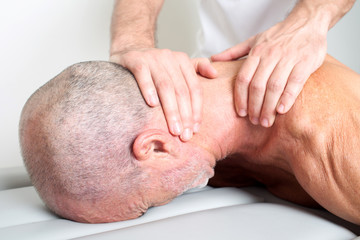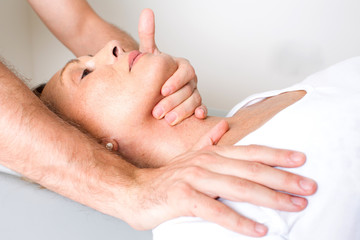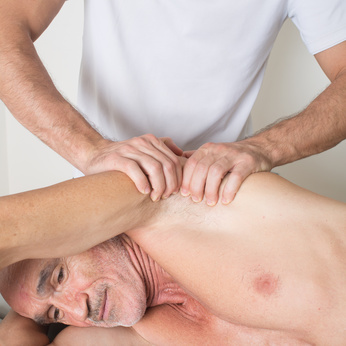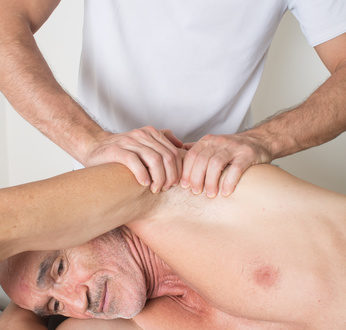 Sure a massage feels great and is a nice way to treat yourself every now and then, but is it truly beneficial to your health and wellness? Science says . . . absolutely! From aiding post-exercise recovery to pain and stress relief, a growing body of research is showing massage is a must when it comes to natural treatment for many common ailments:
Sure a massage feels great and is a nice way to treat yourself every now and then, but is it truly beneficial to your health and wellness? Science says . . . absolutely! From aiding post-exercise recovery to pain and stress relief, a growing body of research is showing massage is a must when it comes to natural treatment for many common ailments:
Relieves Low Back Pain
Sedentary lifestyles, poor posture, low rates of physical activity, and being overweight can all contribute to low back pain, and for many doctors, this is one of the most common complaints from patients. As much as possible, experts recommend noninvasive treatments for low back pain including stretching, exercise, spinal manipulation, and you guessed it, massage!
How does massage address low back pain? In addition to increasing blood circulation to ailing muscles and tendons, it can help with spinal alignment, break up scar tissue, relieve muscle tension and inflammation, and reduce overall sensations of pain. A June 2017 study found in particular that Thai massage had a great effect in both temporarily reducing pain as well as decreasing disability in patients with chronic nonspecific low back pain.
Helps Your Muscles Repair After Exercise
Getting a massage after a long work week always seems like a good idea, but what about after an intense workout? Interesting research reveals that pressure massage of specific muscles right after they are engaged in high intensity physical activity may speed up the body’s natural recovery process.
When you commit to intense physical activity or weight lifting, your body’s muscle tissues actual incur microscopic shreds and tears which your body naturally goes about repairing, helping you to build new muscle and tone. Massage of these muscles is believed to help boost blood flow to flush out built up lactic acid and other toxins, as well as reduce inflammation. A 2012 study found that on a cellular level, receiving massage after exercise-induced injury stimulated mitochondrial activity – mitochondria give your cells energy to function and repair.
Reduces Stress Levels
 Overly stressed or worried? Massage has been shown to provide relaxing and soothing relief to fretting minds. The very nature of massage is tranquilising, as it is typically administered in a quiet and relaxing setting with dim lighting and even transcendent music playing. Massage can help take your mind off worrisome thoughts, as well as stimulate the body to produce endorphins or feel good hormones.
Overly stressed or worried? Massage has been shown to provide relaxing and soothing relief to fretting minds. The very nature of massage is tranquilising, as it is typically administered in a quiet and relaxing setting with dim lighting and even transcendent music playing. Massage can help take your mind off worrisome thoughts, as well as stimulate the body to produce endorphins or feel good hormones.
The American Psychology Association shares that physically, massage can relieve muscle tension, lower heart rate and blood pressure, loosen stiff joints, and restore normal blood circulation. Key risk factors of temporary and chronic stress like not getting enough sleep, experiencing pain, digestive and immunity issues, as well as mental fogginess, can be supported by massage from both a professional masseuse as well as yourself, simply rubbing your own feet for example.
Aids Arthritis Symptoms
 Joint inflammation can affect many parts of the body for arthritis sufferers, from the hands to the hips, knees, and feet. Massage with manual spinal manipulation or a massage roller, for example, has been shown to aid symptoms of arthritis including swelling, pain, and limited mobilisation of joints.
Joint inflammation can affect many parts of the body for arthritis sufferers, from the hands to the hips, knees, and feet. Massage with manual spinal manipulation or a massage roller, for example, has been shown to aid symptoms of arthritis including swelling, pain, and limited mobilisation of joints.
A June 2017 study that looked at self-reported benefits of 18 adults who had received massage therapy for osteoarthritis of the knee found that participants felt more empowered and able to go about daily living activities after receiving massage therapy than before. While calling out the need for further more robust studies around massage and arthritis relief, a systematic review in February 2017 of multiple studies did acknowledge growing evidence that supports the link between massage therapy and improved functional outcomes and pain relief in arthritis patients.
While it’s unlikely you needed another reason to get a massage, now you’ve got scientific data to back you up. Whether you’re suffering from stress overload or arthritis, massage could become an integral part of your plan for prioritising your own health and wellness.









Join the Discussion
Type out your comment here:
You must be logged in to post a comment.